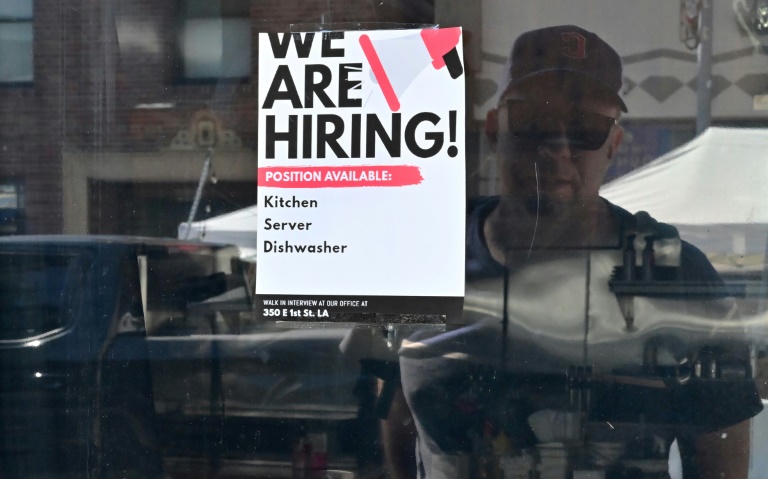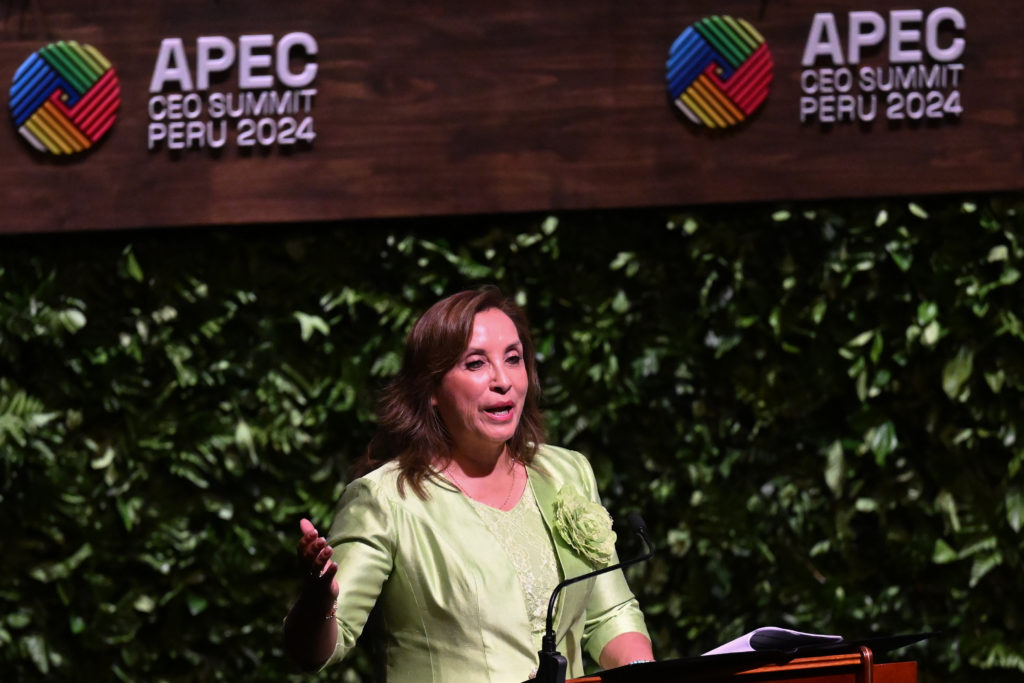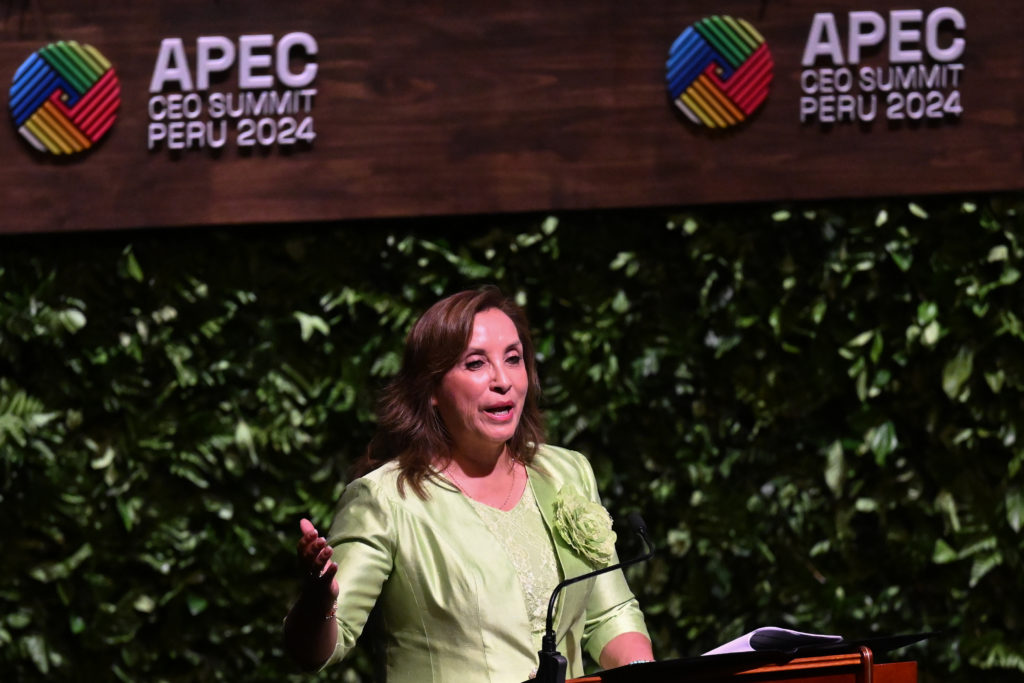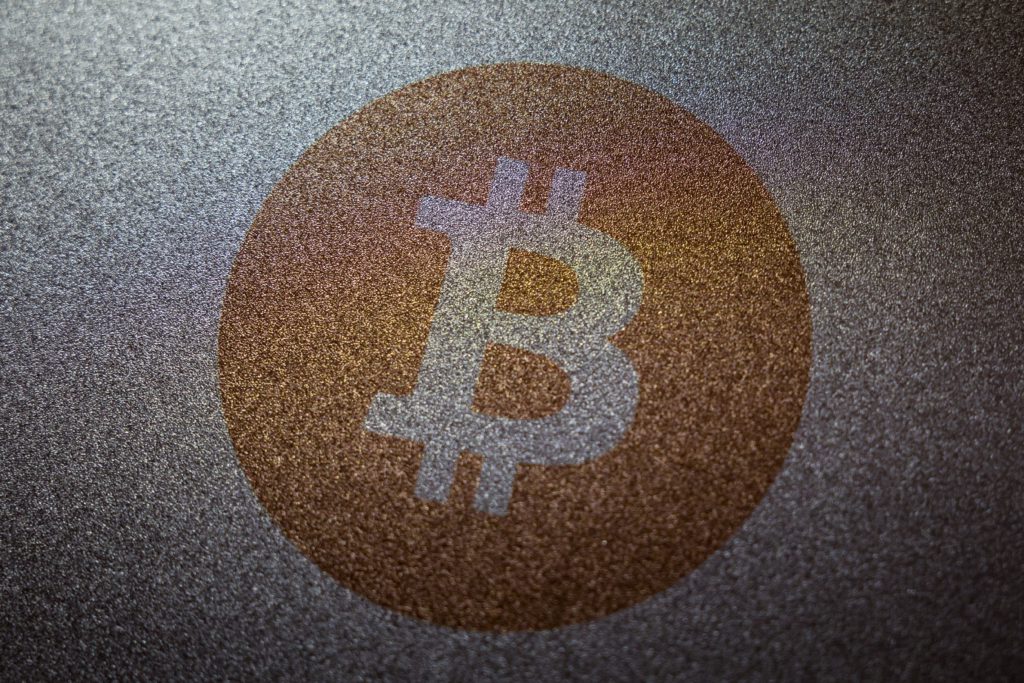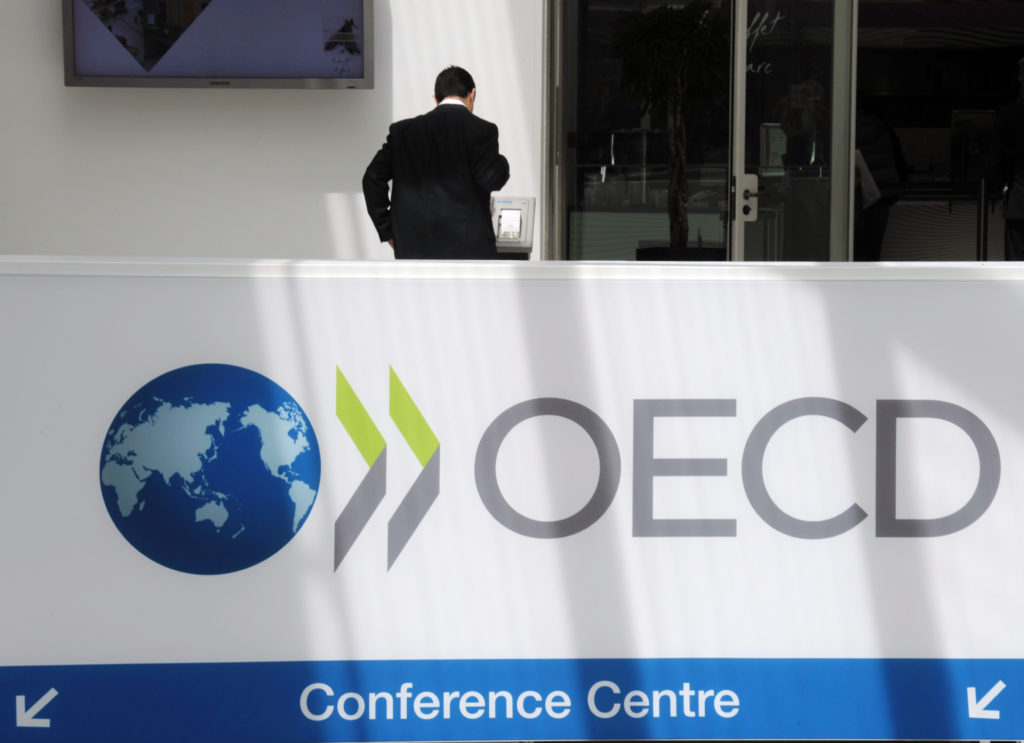A 'We Are Hiring' sign is seen in front of a restaurant in Los Angeles, California in August 2022
American employers slowed the pace of hiring in August after the surprising surge in the prior month and the jobless rate edged up, according to government data released Friday, which could offer the central bank some relief that its inflation-fighting efforts are working.
The Federal Reserve is paying close attention to the progression of the hot job market, looking for signs of easing as it tries to cool the economy with steep interest rate hikes to tamp down inflation which has reached a 40-year high.
While the data showed wages continued to rise, the unemployment rate ticked up as more workers joined the labor force, a welcome development that could allow the Fed to opt for a smaller move later this month after two consecutive super-sized rate increases.
President Joe Biden, who has been riding a wave of legislative and economic victories, cheered the latest report.
“More great news: Our jobs market remains strong. Even more Americans are coming back to work,” Biden tweeted.
Even with the slowing pace, the job gains bring employment above the pre-pandemic level, the Labor Department said in the closely watched monthly report.
The US economy added 315,000 jobs last month, the report said, which was in line with what economists were expecting after 526,000 hires in July.
The unemployment rate moved back up to 3.7 percent, after dipping to 3.5 percent in the prior month, according to the data. And the labor force participation rate rose three-tenths to 62.4 percent.
But wages continued to climb in August, as average hourly earnings rose another 10 cents, or 0.3 percent, to $32.36 — slower from the pace in recent months. Over the past 12 months, worker pay has increased by 5.2 percent.
Continued upward pressure is a cause for concern since the Fed fears it could lead to a wage-price spiral and push inflation higher.
Surging inflation, exacerbated by high energy prices due to Russia’s war in Ukraine, as well as supply chain struggles and Covid-lockdowns in China, has prompted the Fed to raise the benchmark borrowing rate four times this year, including giant 0.75 percentage point increases in June and July.
However, the latest data “may tip the scale towards a 50-basis point rate hike” at the September 20-21 meeting, said Rubeela Farooqi of High Frequency Economics, although the next report on consumer price inflation also will be a key factor.
Still, she said “these data are not going to change the Fed’s view that policy needs to move to a restrictive stance over coming months.”
Diane Swonk of KPMG agreed.
“The Fed is committed to reducing the demand for workers and increasing labor supply, via a much larger rise in the unemployment rate than we saw today,” she said in an analysis.
But other analysts see the central bankers on track for a third consecutive three-quarter point rate hike.
In July, there were still more than 11 million job openings, or two for every job seeker.
– Soft landing possible –
US GDP contracted in the first two quarters of 2022, which is commonly viewed as a sign of a recession, but the robust job market defies that definition.
Companies have faced a labor shortage for months, prompting them to offer higher wages, which is in turn driving up prices. And there are signs firms are “hoarding” workers — holding onto seasonal employees for fear they might not be able to replace them later.
Fed officials have made it clear in repeated statements that they will continue to raise interest rates to cool the economy, even if monthly data show some signs of progress.
Fed Chair Jerome Powell hammered home this point last week at a conference in Jackson Hole, Wyoming, warning of “pain” ahead for American households and businesses.
The concern is that the aggressive actions will tip the world’s largest economy into recession.
US Treasury Secretary Janet Yellen said that although it will be difficult, she remains “hopeful that we can achieve a soft landing.”
But she acknowledged in an interview on MSNBC that “bringing down inflation is clearly a key priority.”
Yellen noted that “nearly 800,000 workers rejoined the labor market in August” which is an encouraging sign even amid an expected slowing of the economy.
“That’s important because it means the growth in our economy isn’t creating pressure on inflation,” she said.

